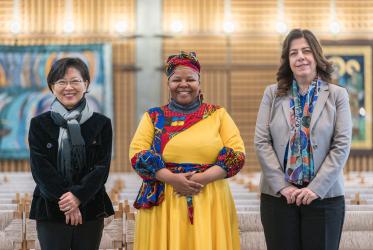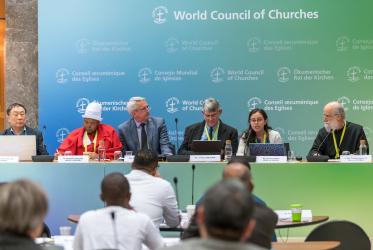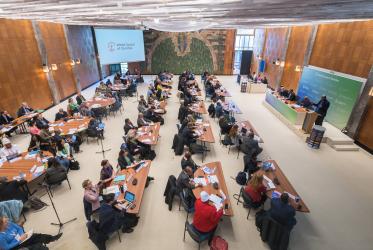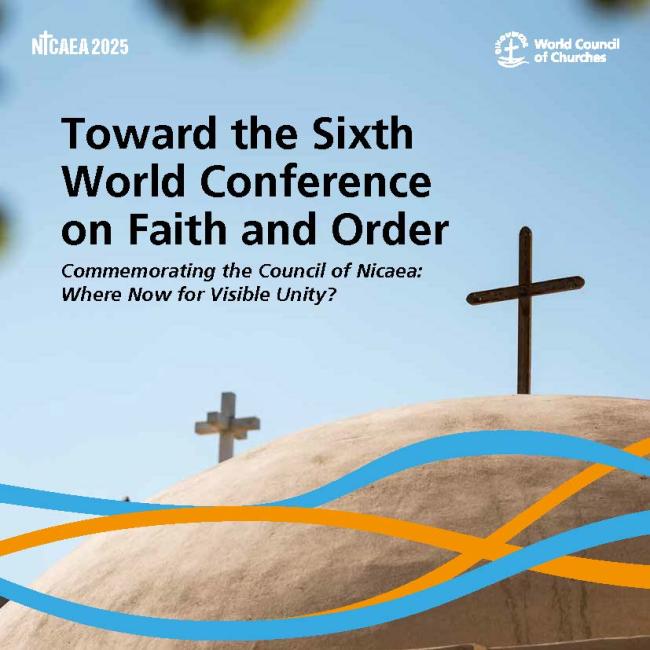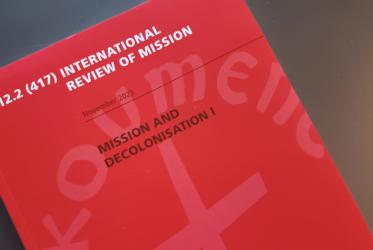Displaying 1 - 20 of 603
17 April 2024
WCC, WHO commemorate 50 years of collaboration
04 April 2024
Compêndio De Práticas Promissoras de intervenções de comunidades religiosas africanas contra o HIV em crianças e adolescentes
Sumário Executivo
23 March 2024
Compendium of Promising Practices of African Faith Community Interventions against Paediatric and Adolescent HIV
Executive Summary
23 March 2024
Three WCC commissions elect vice moderators
08 March 2024
Toward the Sixth World Conference on Faith and Order
Commemorating the Council of Nicaea: Where Now for Visible Unity?
24 February 2024
In Angola, WCC takes human rights approach to obstetric fistula
01 February 2024
Um Guia para as Igrejas sobre a Prevenção da Fístula Obstétrica
16 January 2024
WCC webinar explores decolonizing beauty
11 December 2023








